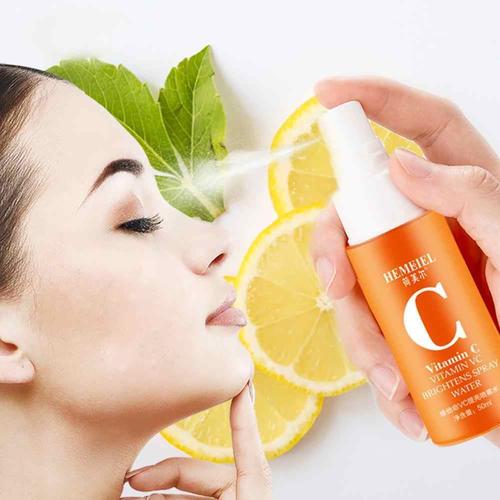现在男人也开始关注美容护理英文
Title: Essential Beauty and Skincare: Understanding the Basics
Beauty and skincare are essential components of selfcare and wellness, encompassing a range of practices aimed at enhancing and maintaining the health and appearance of the skin, hair, and body. Whether you're a skincare enthusiast or new to the world of beauty, understanding the fundamentals is key to establishing an effective routine tailored to your needs. In this guide, we'll explore the essential concepts and terminology in beauty and skincare.
1. Cleansing: The Foundation of Skincare
Cleansing forms the cornerstone of any skincare routine. It involves the removal of dirt, oil, makeup, and impurities accumulated on the skin's surface. Cleansers come in various forms, including foaming cleansers, gel cleansers, and cleansing balms. It's crucial to choose a cleanser suited to your skin type—whether oily, dry, combination, or sensitive—and to cleanse gently to avoid stripping the skin of its natural oils.
2. Moisturizing: Hydration and Nourishment
Moisturizing is essential for maintaining skin hydration, preventing dryness, and promoting a smooth, supple complexion. Moisturizers contain ingredients such as humectants, emollients, and occlusives to attract and retain moisture in the skin. Select a moisturizer appropriate for your skin type and concerns, whether you require lightweight hydration, intensive repair, or sun protection.
3. Sun Protection: Shielding Against UV Damage

Sun protection is paramount for safeguarding the skin against the harmful effects of ultraviolet (UV) radiation, including premature aging, sunburn, and skin cancer. Use broadspectrum sunscreen with a minimum SPF (sun protection factor) of 30, and reapply regularly, especially when exposed to sunlight for extended periods. Additionally, seek shade, wear protective clothing, and avoid sun exposure during peak hours to minimize UVrelated risks.
4. Exfoliation: Renewing the Skin Surface
Exfoliation involves the removal of dead skin cells from the skin's surface, promoting cell turnover, and revealing a fresher, more radiant complexion. Mechanical exfoliation, using scrubs or brushes, and chemical exfoliation, with alpha hydroxy acids (AHAs) or beta hydroxy acids (BHAs), are common methods. However, it's essential to exfoliate gently and not overdo it, as excessive exfoliation can lead to irritation and sensitivity.
5. Skincare Ingredients: Understanding Key Components
Familiarize yourself with common skincare ingredients and their benefits. Ingredients like retinoids (vitamin A derivatives) stimulate collagen production and reduce wrinkles, while antioxidants such as vitamin C protect against environmental damage. Hyaluronic acid hydrates and plumps the skin, while niacinamide (vitamin B3) helps regulate oil production and improve skin texture. Tailor your skincare products to incorporate ingredients that address your specific concerns and goals.
6. Customization: Personalizing Your Skincare Routine
Every individual has unique skin concerns and preferences, necessitating a customized approach to skincare. Experiment with different products, formulations, and techniques to determine what works best for your skin. Keep track of your skin's response to different products and adjust your routine accordingly. Consulting with a dermatologist or skincare professional can provide valuable insights and recommendations tailored to your skin's needs.
7. Lifestyle Factors: Impact on Skin Health
In addition to skincare products and routines, lifestyle factors profoundly influence skin health. Get an adequate amount of sleep to allow for skin repair and regeneration, stay hydrated by drinking plenty of water, and maintain a balanced diet rich in vitamins, minerals, and antioxidants. Minimize stress levels, as stress can exacerbate skin conditions such as acne and eczema. Finally, avoid smoking and limit alcohol consumption, as these habits can accelerate skin aging and damage.
Conclusion: Embracing a Holistic Approach to Beauty and Skincare
Beauty and skincare encompass more than just external practices; they reflect a holistic approach to selfcare and wellbeing. By understanding the fundamentals of cleansing, moisturizing, sun protection, exfoliation, and skincare ingredients, you can establish an effective routine tailored to your skin's unique needs. Embrace customization, explore new products and techniques, and prioritize lifestyle factors that support skin health and vitality. With dedication and care, you can achieve a radiant complexion and enhance your overall sense of confidence and wellbeing.
This comprehensive guide provides a solid foundation for navigating the world of beauty and skincare, empowering you to make informed decisions and achieve your skincare goals. Remember, consistency and patience are key, and always listen to your skin's needs as you embark on your journey to radiant, healthy skin.
References:
American Academy of Dermatology Association. (n.d.). Skin care on a budget. Retrieved from https://www.aad.org/public/everydaycare/skincarebasics/skincareonabudget
Skin Cancer Foundation. (n.d.). Sunscreens explained. Retrieved from https://www.skincancer.org/skincancerprevention/sunprotection/sunscreen/
Mayo Clinic. (2020, October 22). Skin care: 5 tips for healthy skin. Retrieved from https://www.mayoclinic.org/healthylifestyle/adulthealth/indepth/skincare/art20048237











